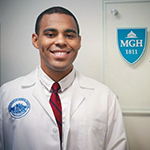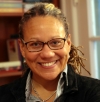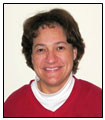Harvard Catalyst Program for
Diversity Inclusion (PFDI) Faculty Fellowship
Faculty Fellows Alumni
2021-2023 HARVARD CATALYST PROGRAM FOR DIVERSITY INCLUSION (PFDI) FACULTY FELLOWSHIP RECIPIENT
Dennis Spencer, MD, PhD
Instructor in Pediatrics, Harvard Medical School, Boston Children’s Hospital
Mentor: Seth Rakoff-Nahoum, MD, PhD, Assistant Professor of Pediatrics, Harvard Medical School; Associate Physician in Pediatrics, Boston Children’s Hospital
Division Chief: Scott B. Snapper, MD PhD, Professor of Medicine, Harvard Medical School; Chief, Division of Gastroenterology, Hepatology and Nutrition, Boston Children's Hospital
Project Title: “Modification of Gut Microbiome Antibiotic Resistance through Dietary Glycans”
Project Description: The gut microbiome plays an important role in health and disease. One of these important roles is excluding opportunistic enteric pathogens by “colonization resistance”. Bacteroides is the predominant Gram-negative bacteria of the human gut where it competes and survives with a unique capacity to metabolize a diverse range of dietary glycans. Depletion of the Bacteroidetes phylum during antibiotics use is associated with increased risk of enteric infections, including Clostridium difficile. There is a link between diet and the microbiota as well as an important role for metabolism in bacterial antibiotic susceptibility. My preliminary data establishes carbohydrate-specific effects of antibiotic susceptibility in Bacteroides ovatus during cultivation in vancomycin. Further, Transposon Sequencing (TnSeq) studies identified carbohydrate utilization genes associated with antibiotic fitness effects. My project, “Modification of Gut Microbiome Antibiotic Resistance through Dietary Glycans” hypothesizes that specific glycans tune antibiotic susceptibility in Bacteroides and that this may be understood to devise targeted antibiotic-specific prebiotic strategies to promote colonization resistance. To test this, we will: determine which dietary sugars impact antibiotic susceptibility across antibiotic class and Bacteroides strains (Aim 1); use next generation sequencing approaches to elucidate mechanisms by which sugars modulate antibiotic susceptibility (Aim 2); and assemble co-resident Bacteroides communities isolated from pediatric BMT patients’ stool to identify patient-specific optimal sugars that maximize Bacteroides resistance while minimizing opportunistic gut pathogens (Aim 3). This project involves collaboration with BCH Heme/Onc/SCT, utilizing stool from pediatric hematopoietic stem cell transplant patients. The work also benefits from use of the Harvard Biopolymers facility.
Biography: Dr. Dennis Spencer is a Pediatric Gastroenterologist at Boston Children’s Hospital (BCH) and an Instructor in Pediatrics at Harvard Medical School (HMS). A physician-scientist, he is an investigator in the Rakoff-Nahoum laboratory (HMS/BCH) with a focus on the impact of diet on the composition and function of the gut microbiome. Dr. Spencer is a Faculty Advisor in the HMS Office of Recruitment and Multicultural Affairs as well as Faculty Chair of the BCH Graduate Medical Education Committee’s Joint Diversity & Recruitment subcommittee. He was recently awarded the 2021 Harold Amos Faculty Diversity Award from HMS. The National Medical Association has also recognized Dr. Spencer as a 2021 Top Physician Under 40 Award recipient. Dr. Spencer completed the Harvard Medical School (HMS) Fellowship in Pediatric Gastroenterology, Hepatology, and Nutrition at Boston Children’s Hospital following his residency at Lucile Packard Children’s Hospital / Stanford University. He is a graduate of the Weill Cornell / Rockefeller / Sloan-Kettering Tri-Institutional MD-PhD Program, obtaining a PhD in Microbial Pathogenesis and Immunology from The Rockefeller University. He is also a proud alumnus of Morehouse College.
Protected Time for Research: Two-year faculty fellowship supports junior faculty at critical juncture
HMS News | June 28, 2021
2020-2022 HARVARD CATALYST PROGRAM FOR DIVERSITY INCLUSION (PFDI) FACULTY FELLOWSHIP RECIPIENT
Randy Miles, MD, PhD
Assistant Professor of Radiology at Massachusetts General Hospital
Department Chair and Mentor: Constance D. Lehman, MD, PhD, Professor of Radiology, Massachusetts General Hospital
Project Title: External Validation and Clinical Assessment of a Deep Learning Risk Prediction Model for Mammography Interpretation
Project Description: While recent studies evaluating artificial intelligence (AI) demonstrate promising results, it is imperative that AI tools are thoroughly assessed prior to widespread use to avoid past mistakes with implementation of conventional computer assisted detection (CAD), which led to increased healthcare costs despite only marginal benefit. Current AI studies largely share the following that may limit maximal clinical utility: 1) requirements for large, well-curated datasets to train and validate algorithms, which may not be representative of real-time clinical imaging data 2) validation using internal data sets only, limiting generalizability to diverse patient populations, equipment manufacturers, and/or clinical settings, and 3) lack of evidence on how AI tools can be implemented to maximize clinical impact. We have previously published on our AI model using deep learning techniques, developed from institutional data using 223,109 consecutive screening mammograms performed in 66,661 women from January 1, 2009 to December 31, 2016, that predicts breast cancer risk, based on a woman’s current mammogram. Our model obtained an AUC of 0.82(95%CI:0.80,0.85). Personalized risk prediction scores determined by our model can potentially be used by radiologists to improve radiologist’s interpretative performance, if provided at the time of mammography interpretation. To inform clinical implementation of our model, we aim to 1) validate our AI model utilizing imaging data from a large, diverse external dataset and 2) quantitatively determine the effect of our model on radiologist interpretative performance. Together, this work has the potential to positively impact breast cancer screening by providing a framework for clinical implementation of our model to improve radiologist performance.
Biography: Randy C. Miles MD, MPH, is an Assistant Professor in the Department of Radiology at Massachusetts General Hospital. He is originally from Green Level, NC. He completed his B.S. in Chemistry from Hampton University graduating Summa Cum Laude with Honors. Subsequently, he obtained his MD from Mayo Clinic College of Medicine, where he co-led health missions to underserved regions in Haiti and the Dominican Republic. His international public service led him to obtain a MPH from Chan Harvard School of Public Health, where he was awarded the Zuckerman fellowship. During this time, he learned about racial disparities in breast cancer mortality and discovered his passion for improving breast cancer care in traditionally underserved groups. His clinical practice as a board- certified radiologist, specializing in breast imaging, includes image interpretation of digital mammography, digital breast tomosynthesis (“3D mammography”), breast ultrasound (including automated breast ultrasound (ABUS)), and breast MRI. He also performs image- guided procedures including breast biopsies, aspirations, wire/seed localization, and lymphoscintigraphy. His clinical, research, and public health efforts center around improving breast cancer outcomes primarily through 1) identifying barriers to breast cancer screening, 2) creating patient-centered initiatives to improve access to breast imaging services, and 3) examining how to improve delivery of high quality, guideline- concordant breast care for all patients using artificial intelligence. Within the breast imaging division, he has a leadership role in community health, where he has led research efforts focused on reduction of breast cancer screening barriers, appropriate utilization of supplemental screening tools, and assessment of online patient educational materials for factors related to health literacy. In addition, he currently works with international hospitals to improve all facets of care in breast imaging related to physician training, workflow optimization, and patient experience.
2020-2021 HARVARD CATALYST PROGRAM FOR DIVERSITY INCLUSION (PFDI) FACULTY FELLOWSHIP RECIPIENT
Hermioni Amonoo, MD, MPP
Assistant Professor of Psychiatry at Brigham and Women’s Hospital
Department Chair: David A. Silbersweig, MD, Stanley Cobb Professor of Psychiatry, Brigham and Women’s Hospital
Mentor: Jeffery C. Huffman, MD, Professor of Psychiatry, Massachusetts General Hospital
Project Title: Development of a positive psychology intervention to improve mood and health related quality of life in patients post hematopoietic stem cell transplantation- Proof of Concept Trial
Project Description: Allogeneic hematopoietic stem cell transplantation (HSCT) is a potentially curative treatment for some hematologic malignancies. Notwithstanding the promising nature, the transplantation process and recovery is intensive and fraught with potential life-threatening complications during recovery. Hence, HSCT recipients have a high burden of distress and quality of life (QOL) deficits. Most efforts to achieve optimal psychological weli-being in this population have targeted the reduction of distress (e.g., depression). However, positive psychological well-being ( e.g., optimism), can buffer against this distress and has been prospectively associated with improved QOL and survival in this population. Positive psychological interventions (PPis), which utilize systematic activities (e.g., recalling positive life events) to promote psychological well-being, have consistently and durably enhanced psychological health and QOL in medical settings, but have never been used in HSCT patients. Given the need for new programs to promote well-being and recovery after HSCT, the proposed project will develop and test a novel PPI in this population to fill this unmet need. I will develop the PATH (Positive psychology for Allogeneic Transplantation of Hematopoietic stem cells) intervention via a review of the literature and application of theoretical frameworks, then test its acceptability (via quantitative participant ratings and qualitative feedback at exit interviews) in a one-arm proof-of-concept trial (N= l0; Aim 1). Next, I will test its feasibility and preliminary efficacy on health outcomes in a pilot randomized controlled trial (N=60; Aim 2). In sum, the HMS-PFDD Award will prepare me to become an independent investigator and leader who develops novel evidence-based supportive oncology interventions.
Biography: Hermioni L. Amonoo, MD, MPP, is an Assistant Professor at Harvard Medical School (HMS) and a staff physician in the Department of Psychiatry at Brigham and Women’s Hospital (BWH) and the Department of Psychosocial Oncology and Palliative Care at the Dana-Farber Cancer Institute (DFCI). She is also the Associate Training Director of the BWH/HMS Adult Psychiatry Residency Training Program. Dr. Amonoo was born and raised in Accra, Ghana and miraculously moved to Indiana to complete her BSc. in Biology and Chemistry at Purdue University. She then completed her M.D. and M.P.P. at Harvard Medical School and Harvard Kennedy School of Government. She completed her clinical training at the Massachusetts General Hospital/McLean Hospital Adult Psychiatry Residency Training Program and the BWH/DFCI Consultation Liaison Psychiatry and Psychosocial Oncology Fellowship. Her clinical work in medical psychiatry and psychosocial oncology inspired her research program aimed at understanding distress in vulnerable cancer populations to inform the development of novel supportive oncology interventions that impact health outcomes.
2018 HARVARD CATALYST PROGRAM FOR FACULTY DEVELOPMENT AND DIVERSITY INCLUSION (PFDD) FACULTY FELLOWSHIP - HMS
Steven Rodriguez, PhD
Instructor, Massachusetts General Hospital
Department of Biological Chemistry and Molecular Pharmacology
Mentor: Mark W. Albers, MD, PhD, Assistant Professor of Neurology, Frank Wilkens Jr. and Family Endowed Scholar in Alzheimer’s Disease Research, Massachusetts General Hospital
Department Chair: Merit Cudkowicz, MD, Julieanne Dorn Professor of Neurology, Head of the Department of Neurology, Massachusetts General Hospital
Project Title: “Preclinical identification and validation of a novel inflammatory signature as biomarkers for the treatment of ALS”
Project Description: Amyotrophic lateral sclerosis (ALS) is a devastating neurodegenerative disease that progressively erodes neurons in the brain and spinal cord. Current therapies only offer modest benefits to ALS patients, necessitating a better understanding of the mechanisms of neurodegeneration. We have identified a novel mechanism in ALS that is initiated by genomeencoded dsRNA that activates a neuroinflammatory antiviral innate immune pathway, leading to neurodegeneration. We developed and screened a neural culture model system of dsRNAmediated neurotoxicity and we identified an FDA-approved drug that rescues neurotoxicity. We will determine if this drug can reduce neurodegeneration in an animal model before it can be tested in a clinical trial for ALS. Additionally, it will be essential to identify mechanistic biomarkers for efficacy of this drug in patients. Based on work in the literature and our work, we initially propose to test if a panel of 4 biomarkers found in the CSF of ALS patients that are elevated by dsRNA-mediated signaling. We will examine the effectiveness of the drug to decrease the expression of these biomarkers in our culture model. Working with collaboration with computational scientist we identified an additional 25 secreted proteins by mass-spec based proteomics, whose expression is increased by dsRNA. We will further test if these can be novel mechanistic biomarkers for drug activity. This study will help determine if an FDA-approved drug we found to rescue dsRNA-mediated toxicity is a viable option as a therapeutic drug for ALS patients.
Biography: Steven Rodriguez, Ph.D., is an Instructor in the Department of Neurology at Massachusetts General Hospital. Steven was born and raised in Bronx, NY. He completed his B.A. from Queen's Collage CUNY. Steven got his Ph.D. studying the development and connectivity of neurons in the mouse olfactory neural circuit in the lab of David Lin at Cornell University. During his work he elucidated a non‐cell‐autonomous role for Notch2, a gene known for its role in development, in maintaining neuronal viability in adult mice. This work got him interested in studying mechanisms of neurodegeneration. He did a postdoctoral fellowship under the guidance of Dr. Mark Albers at the Institute for Neurodegenerative disease at MGH. In Mark’s lab, he uses the main olfactory system and human cultured neurons to study mechanisms of neurodegeneration. He found a novel mechanism of neurotoxicity mediated by DNA damage induced activation of antiviral innate immune pathways. Steven also became a member of the Lab of Systems Pharmacology at Harvard Medical School where he continues to work on the role of antiviral signaling in neurodegeneration and on identifying therapeutic approaches to treat neurodegenerative disease.
2017 HARVARD CATALYST PROGRAM FOR FACULTY DEVELOPMENT AND DIVERSITY INCLUSION (PFDD) FACULTY FELLOWSHIP - HMS
Mélissa Léger-Abraham, PhD
Lecturer, Harvard Medical School;
Department of Biological Chemistry and Molecular Pharmacology
Mentor: Gerhard Wagner, PhD, Elkan Rogers Blout Professor, Department of Biological Chemistry and Molecular Pharmacology, Harvard Medical School
Department Chair: Stephen Blacklow, PhD, MD, Gustavus Adolphus Pfeiffer Professor; Chair, Department of Biological Chemistry and Molecular Pharmacology, Harvard Medical School
Project Title: “Structure-Function Analysis of Translation Initiation Using CRISPR/Cas9 in the Human Parasite Leishmania”
Project Description: Leishmaniasis is a parasitic disease that affects more than 350 million people worldwide and is endemic in vast areas of the tropics, subtropics, and the Mediterranean basin. Native populations, travelers, and military personnel who spend time in affected areas are most at risk. Parasites cause four clinical syndromes; these include a visceral form of the disease, which is lethal, and a cutaneous form, which is the most widespread. The goal of our research project is to validate translation initiation factors in parasites, as targets for specific anti-parasitic drugs against Leishmaniasis. We are establishing a CRISPR/Cas9 genome-editing platform to knockout specific translation initiation factors in Leishmania and will use a quantitative proteomic technique (SILAC labeling coupled to mass spectrometry analysis) to monitor changes in Leishmania protein expression induced by knockout or overexpression of translation initiation factors. We will also use biophysical techniques, such as X-ray crystallography and nuclear magnetic resonance, to determine the molecular structures of candidate translation initiation factors (and their associated protein complexes), to identify differences and similarities between the factors found in human cells and their orthologs in parasites. We expect our findings to translate into novel anti-parasitic drugs. They will also offer a proof of concept for this approach in treating other parasitic infections that significantly burden human health but currently have limited treatment options.
Biography: Mélissa Léger-Abraham, PhD, is an Instructor at Harvard Medical School in the Department of Biological Chemistry and Molecular Pharmacology. Her research focuses on understanding the structural basis for protein translation in parasites that cause two important human diseases, Leishmaniasis and Malaria. Dr. Léger-Abraham was originally born in Montreal, Canada. She is the daughter of a French-Canadian father and a Haitian mother. She obtained her PhD in Biochemistry at the Université de Montréal. She conducted her postdoctoral studies in the laboratory of Professor Gerhard Wagner at Harvard Medical School. Her research combines techniques in molecular biology (including CRISPR/Cas9 genome editing), protein biochemistry, and structural biology (X-ray crystallography and nuclear magnetic resonance). Her goal is to identify and structurally characterize key components in the parasite protein translation machinery to develop a new class of specific anti-parasitic agents.
2016 HARVARD CATALYST PROGRAM FOR FACULTY DEVELOPMENT AND DIVERSITY INCLUSION (PFDD) FACULTY FELLOWSHIP - HMS
Natasha M. Archer, MD, MPH,
Associate Professor, Harvard Medical School;
Department of Pediatrics, Boston Children's Hospital
Mentor: David Nathan, MD, Robert A. Stranahan Distinguished Professor of Pediatrics and Professor of Medicine, Harvard Medical School; President Emeritus, Dana-Farber Cancer Institute
Division Chief: David A. Williams, MD, Leland Fikes Professor of Pediatrics, Harvard Medical School; Chief, Division of Hematology/Oncology, Department of Pediatrics, Boston Children's Hospital
Project Title: “The Effect of Fetal Hemoglobin on Plasmodium Falciparum Invasion and Growth”
Project Description: P. falciparum, the deadliest of malaria parasites, massively but sequentially degrades hemoglobin subunits beginning with plasmepsin I and II cleavage at α 33-34. Fetal hemoglobin (HbF) is composed of 2 α and 2 γ chains. Due to enhanced α/γ relative to α/β dimer stability, the α chains of HbF may be relatively more resistant to parasitic plasmepsin I and II cleavage as compared to HbA conferring protection from intraerythrocyte growth of P. falciparum to neonates and those with hemoglobinopathies such as hemoglobin (Hb) S, C and E and β-thalassemia, all characterized by high HbF. While others have demonstrated increased invasion but decreased P. falciparum growth in high HbF-containing human and human γ-transgenic murine red cells, the fraction of HbF in erythrocytes required for malaria inhibition, and the mechanism by which HbF exerts this effect, are unknown. Characterizing HbF’s role in P. falciparum infection will help lead to further understanding of how HbF and medications that increase it, such as hydroxyurea, will affect patients with hemoglobinopathies who live in malaria endemic regions.
Biography: Natasha M. Archer, MD, MPH, is a pediatric hematologist/oncologist at Dana-Farber/Boston Children’s Cancer and Blood Disorders Center, an instructor in pediatrics at Harvard Medical School, and associate physician in the Division of Global Health Equity at Brigham and Women’s Hospital. She is also the senior health and policy advisor for Hematology at Partners In Health (PIH), a Boston-based non-profit health care organization. Dr. Archer’s research focuses on the delivery of effective hematology care in resource-limited settings. Dr. Archer has helped the PIH team in Mirebalais, Haiti set up a program for newborn screening and disease management for sickle cell disease. Her ongoing clinical research focuses on ways to effectively diagnosis and manage anemia in Haiti. In addition, Dr. Archer’s translational research explores the relationship between hemoglobin and malaria infectivity. Dr. Archer completed her fellowship in pediatric hematology/oncology at Dana-Farber/Boston Children’s in 2014 and her medicine and pediatrics residency in the Harvard Combined Internal Medicine/Pediatrics Residency training program. She completed the Doris and Howard Hiatt Global Health Equity Residency in 2011. Dr. Archer earned her BS from Yale University in 1999, her MD from Yale University School of Medicine in 2006, and her MPH from Harvard School of Public Health in 2011.
2015 HARVARD CATALYST PROGRAM FOR FACULTY DEVELOPMENT AND DIVERSITY INCLUSION (PFDD) FACULTY FELLOWSHIP - HMS
Kathryn T. Hall, PhD, MPH, MA
Assistant Professor in Medicine, Division of Preventive Medicine,
Brigham and Women's Hospital and Harvard Medical School
Mentor: Kenneth J. Mukamal, MD, MPH, MA, Associate Professor of Medicine, Harvard Medical School; Associate Physician, Department of Medicine, Beth Israel Deaconess Medical Center
Division Chief: JoAnn Manson, MD, DrPH, Professor of Medicine and Elizabeth Fay Brigham Professor of Women's Health at Harvard Medical School, and Chief of the Division of Preventive Medicine and Co-Director of the Connors Center for Women's Health and Gender Biology at Brigham and Women's Hospital in Boston
Project Title: “Epidemiological, Pharmacogenomic and Clinical Impact of Catechol-O-Methyltransferase on Cardiovascular Disease”
Project Description: This study is designed to determine if genetic variation in catechol-O-methyltransferase (COMT), a key enzyme in catecholamine metabolism, modifies incidence of cardiovascular disease (CVD) and aspirin treatment effects in men and racial/ethnic minority populations. Despite significant strides in prevention, CVD remains a leading cause of death. Pharmacogenomics, the study of genetic effects on drug response, has expanded understanding of CVD pathophysiology and, at least for specific genes and drugs, raised the possibility of personalized medicine. However, the potential of pharmacogenomics to guide improvements in personalized treatment remains largely unrealized. In particular, the impact of gene interactions with commonly used drugs is difficult to assess in epidemiologic studies and clinical trials. This is partly due to extraordinarily large sample sizes required for genome-wide studies of gene-drug interactions and lack of strong candidate genes. We recently identified COMT as a gene with plausible physiological links to both CVD and drug metabolism. In the Women’s Health Study (WHS), a placebo-controlled trial of aspirin for CVD prevention in predominantly Caucasian women, we showed that highly prevalent COMT variants were associated with incidence of major CVD. Importantly, we showed that COMT-associated CVD 3 protection was eliminated in women randomized to aspirin. Given widespread use of aspirin and evidence that COMT-drug sensitive alleles are more prevalent in minority populations, investigating this pharmacogenetic locus in male and minority racial/ethnic populations is imperative. Here I propose to use genetic data from a multiethnic longitudinal cohort and a clinical study to elucidate the generalizability and underlying mechanisms of COMT-CVD associations.
Biography: Dr. Kathryn T. Hall received her PhD in Microbiology and Molecular Genetics from Harvard University in 1996. During her post-doctoral fellowship with Dr. Lee Nadler at Dana Farber Cancer Institute, she cloned and characterized CD100, the first semaphorin identified in the immune system. For the next 10 years, Dr. Hall tackled problems in biotech research and developed expertise in pharmaceutical drug development, first at Wyeth and then at Millennium Pharmaceuticals, where she became an Associate Director of Drug Development. While working in the pharmaceutical industry, Dr. Hall was struck by the health disparities in access to drugs and the tremendous variability in the responses of those who did receive treatment. To address these issues she developed public health media messages acquiring a Masters in Visual Media Arts from Emerson College. With the goal of continuing to examine and address these issues through academic biomedical research, Dr. Hall returned to Harvard Medical School in 2010, joining the Fellowship in Integrative Medicine at Beth Israel Deaconess Medical Center (BIDMC) in 2012 and receiving a Master’s in Public Health from Harvard School of Public Health in 2014.
Working with Ted Kaptchuk at BIDMC in the Program in Placebo Studies, Dr. Hall focused on catechol-O-methyltransferase (COMT) an enzyme that metabolizes catecholamines such as dopamine and epinephrine and has pleiotropic effects in a broad set of diseases and treatments. Her groundbreaking paper identifying COMT as the first genetic marker of placebo response was published in PLOS ONE and has been cited over 50 times since 2012. Dr. Hall coined the term “placebome” to describe the potential genomic perturbations that influence the placebo response and her review of the evidence and implications of its impact on the placebo response is in press at Trends in Molecular Medicine. Dr. Hall’s research captured media attention and her research has been the focus of numerous articles including features in Science and Discover magazine.
Dr. Hall’s current research builds on the emerging role of COMT in network medicine as a hub influencing disease and treatment outcomes from cardiovascular disease to cancer. Using data from the Women’s Health Study (WHS), a large placebo-controlled randomized clinical trial of aspirin for the prevention of cardiovascular disease, Dr. Hall working with Dr. Daniel Chasman at Brigham and Women’s Hospital made the novel observation that women homozygous for the low-activity form of the COMT enzyme had lower rates of major cardiovascular disease when randomized to aspirin compared to placebo; in contrast high-activity COMT homozygotes had increased rates of cardiovascular disease when randomized to aspirin compared to placebo. These original findings have important implications for personalized medicine and were recently published in Arteriosclerosis, Thrombosis and Vascular Biology, 2014. Currently with Dr. Kenneth Mukamal at BIDMC, Dr. Hall is examining COMT in diabetes and cancer. Dr. Hall will complete the Integrative Fellowship later this year and will join the Harvard Medical School faculty in August 2015.
2014 HARVARD CATALYST PROGRAM FOR FACULTY DEVELOPMENT AND DIVERSITY INCLUSION (PFDD) FACULTY FELLOWSHIP - HMS
Abner Louissaint, Jr., MD, PhD
Assistant Professor of Pathology, Harvard Medical School;
Massachusetts General Hospital
Mentor: Shiv Pillai, MD, PhD, Professor of Medicine, Harvard Medical School; Professor of Health Science Technology, Harvard-MIT Division of Health Sciences and Technology; Member, Massachusetts General Hospital Cancer Center
Division Chief: David N. Louis, MD, Benjamin Castleman Professor of Pathology, Harvard Medical School, Pathologist-in-Chief, Massachusetts General Hospital
Project Title: Molecular and gene expression-based characterization of pediatric type follicular lymphoma - A novel and prognostically distinct subtype of follicular lymphoma
Project Description:
The objective of this proposal is to define the molecular distinctions between prognostically distinct subsets of limited-stage FL, in order to improve therapeutic algorithms. Approximately 60% of cases remain localized and never progress, while the remainder of cases ultimately progress to more aggressive lymphoma. Currently, oncologists have no way of distinguishing the cases that will ultimately progress from those that will remain localized. Nevertheless, 40% of these patients are treated with aggressive chemotherapy on the basis of imprecise algorithms despite the toxicities associated with this treatment. Thus, there is a critical need to obtain more accurate indicators of outcome on which to base therapeutic decisions. We aim to define the gene expression differences and molecular alterations that may distinguish two subgroups of FL – pediatric-type FL (PTFL) and adult-type FL (ATFL) - that we believe are prognostically and biologically distinct. To achieve this goal, we will first define the specific gene expression differences that distinguish these entities. We will also use targeted sequencing to characterize the mutational landscapes that define and distinguish these entities. The results of this proposal will significantly impact lymphoma management, as it would identify a cohort of patients who may potentially be spared the toxic effects of radiation and/or aggressive chemotherapy. This effort will require the integration of multiple disciplines, including pathology (microscopic diagnosis), hematology/oncology, genomic analysis and biostatistical analysis. In order to ensure success, I have assembled a team of scientists, pathologists and clinicians who will provide mentorship in each of these areas.
Biography:
Dr. Abner Louissaint, Jr. graduated in 1997 from Washington University in St. Louis as a John B. Ervin Scholar with concentrations in Biology and English literature. He received his MD from Weill Cornell Graduate School in 2005 and a PhD in Neuroscience from Weill Graduate School, where he was awarded the Julian Rachelle Award for the best original research paper published by a graduate student. He came to MGH in 2005, where he completed residency in Anatomic and Clinical Pathology and subsequently completed a fellowship in Hematopathology in 2010. Dr. Louissaint joined the faculty of MGH Pathology two years ago, where his clinical expertise includes hematopathology and autopsy pathology. His research interests are focused on lymphoma diagnosis and pathogenesis; his primary goal as an investigator is to contribute significantly to the diagnosis and treatment of lymphoma by identifying parameters and molecular alterations that help us to understand their pathogenesis, serve as prognostic indicators of outcome, and potentially represent therapeutic targets. In 2010, Dr. Louissaint was awarded the MGH Physician-Scientist Development Award in support of his work on follicular lymphoma. Most recently, he received the 2013 Benjamin Castleman Award at the annual United States & Canadian Academy of Pathology Meeting for his recent paper on pediatric-type follicular lymphoma; the award is granted for an outstanding paper published in the field of human pathology by a researcher under age 40.
2012 HARVARD CATALYST PROGRAM FOR FACULTY DEVELOPMENT AND DIVERSITY INCLUSION (PFDD) FACULTY FELLOWSHIP - HMS
William Curry, MD
Professor of Neurosurgery, Harvard Medical School;
Director of Neurosurgical Oncology, Massachusetts General Hospital
Mentor: Glenn Dranoff, MD, Professor of Medicine, Harvard Medical School; Co Leader, Cancer Vaccine Center, Medical Oncology and Director, Human Gene Transfer Laboratory Core, Dana-Farber Cancer Institute
Department Chair: Robert L. Martuza, MD, William and Elizabeth Sweet Professor of Neuroscience in the Department of Surgery, Harvard Medical School; Chief, Neurosurgical Service, Massachusetts General Hospital
Title of Research Project: Immune monitoring and antigen discovery in patients with malignant glioma
Abstract:
Malignant glioma is a devastating disease, and very few patients have durable responses to therapy. Immunotherapy is a promising approach, and, increasingly, clinical trials have demonstrated safety and biological activity. Survivals results, though uncontrolled and in selected patient populations, are promising. The field is challenged by the lack of standard measures with which to monitor responses to immunotherapy. Standard imaging can be difficult to interpret in the setting of treatment-associated inflammation and progression-free survival may not be as meaningful and outcome as it is with standard chemotherapy and targeted therapies. One of our objectives, therefore, is the identification of glioma-associated antigens, by examining antibody responses at baseline and in response to glioma vaccination. This will be accomplished by patient serum screening of tumor cDNA libraries and by probing of cancer peptide-derived protein arrays. Once antigens are identified, we will quantify vaccinated patient immune responses to these epitopes over time as multiple rounds of vaccine are administered. We will also monitor antibody responses to known glioma-associated antigens, and we will measure T-lymphocyte responses as well. The goal of this project is to generate a library of novel glioma-associated antigens, the responses to which can be followed as measures of biological response to tumor vaccination. Furthermore, these peptides may be developed as future vaccination material, if sufficiently antigenic.
Biography:
William Curry, MD is the Director of Neurosurgical Oncology at Massachusetts General Hospital. Dr. Curry graduated from Cornell University Medical College in 1997 after which he trained in neurosurgery at Mass General. Following the completion of residency in 2004, he studied within the Program for Clinical Effectiveness at the Harvard School of Public Health and was a post-doctoral fellow in the laboratory of Glenn Dranoff, MD, co-Director of the Cancer Vaccine Center at the Dana Farber Cancer Institute.
Dr. Curry is principally interested in developing immune-based strategies for treating patients with malignant brain tumors. He has been the PI for a completed phase I clinical trial examining autologous tumor cell-based vaccination for patients with recurrent malignant glioma, and his laboratory focuses on monitoring antitumor immune responses in patients. In addition, he studies preclinical models of novel immunotherapeutic approaches for intracranial tumors.
Dr. Curry also conducts outcomes research regarding brain tumors. He is the Director of Neurosurgical Education at Mass General, and he is the faculty advisor to the Neurosurgery Interest Group at Harvard Medical School.
2012 HARVARD CATALYST PROGRAM FOR FACULTY DEVELOPMENT AND DIVERSITY INCLUSION (PFDD) FACULTY FELLOWSHIP - HMS
Elsie M. Taveras, MD, MPH,
Professor of Pediatrics, Harvard Medical School;
Professor in the Department of Nutrition, Harvard School of Public Health;
Chief, Division of General Academic Pediatrics, MassGeneral Hospital for Children;
Executive Director, The Kraft Center for Community Health, Massachusetts General Hospital
Department Chair: Ronald E. Kleinman, MD, Professor of Pediatrics, Harvard Medical School; Chief, Department of Pediatrics, Massachusetts General Hospital; Physician-in-Chief, MassGeneral Hospital for Children
Bio: Elsie M. Taveras, M.D., M.P.H. is Chief of the Division of General Academic Pediatrics and Executive Director of the Kraft Center for Community Health at Massachusetts General Hospital. She is also Professor of Pediatrics at Harvard Medical School and Professor in the Department of Nutrition at Harvard T.H. Chan School of Public Health. She received her Bachelor of Science and MD degrees from New York University. After receiving her MD, she did her internship, residency, and chief residency, at the Boston Combined Residency Program at Boston Children’s Hospital and Boston Medical Center in Pediatrics. Dr. Taveras also holds a Master’s in Public Health from the Harvard T.H. Chan School of Public Health.
Dr. Taveras is a Pediatrician and a childhood obesity researcher. Her main focus of research is understanding determinants of obesity in women and children and developing interventions across the lifecourse to prevent obesity and chronic diseases, especially in underserved populations. Her work spans the spectrum of observational studies and interventions—to identify and quantify risk factors— and to modify these risk factors for health promotion and disease prevention. She has published over 150 research studies and served on Committees for the National Academy of Medicine to develop recommendations for prevention of obesity in early life and for evaluating the progress of national obesity prevention efforts. Her work in early life origins of childhood obesity was cited by The Robert Wood Johnson Foundation as one of the most influential studies of 2010 and in the White House Task Force Report on Childhood Obesity in May 2010.
She has received extensive research funding from the National Institutes of Health, the Centers for Disease Control and Prevention, the Patient-Centered Outcomes Research Institute, the American Diabetes Association, the Robert Wood Johnson Foundation, the Boston Foundation, among many other federal and foundation sources. In 2016, she received the Public Health Leadership in Medicine Award from the Massachusetts Association of Public Health for her extensive work improving health and health care in community-based settings. In 2017, she was named Executive Director of the Kraft Center for Community Health, a national center devoted to catalyzing and spreading innovative best practices in community health to improve health outcomes for underserved patients, families and communities.
2011 HARVARD CATALYST PROGRAM FOR FACULTY DEVELOPMENT AND DIVERSITY INCLUSION (PFDD) FACULTY FELLOWSHIP - HMS
Patricia Sylla, MD
Associate Professor of Surgery, Mount Sinai Beth Israel, The Mount Sinai Hospital;
Visiting Assistant Professor of Surgery, Massachusetts General Hospital
Mentor: David Rattner, MD, Warshaw Family Professor of Surgery, Harvard Medical School; Chief of the Division of Gastrointestinal and General Surgery, Massachusetts General Hospital
Department Chair: Andrew Warshaw, MD, W. Gerald Austen Professor of Surgery, Harvard Medical School; Head of the Department of Surgery, Massachusetts General Hospital
Title of Research Project: Transanal Endoscopic Rectosigmoid Resection with Laparoscopic Assistance for Rectal Cancer
Abstract:
The goal of this proposal is to evaluate the safety and efficacy of NOTES (Natural Orifice Translumenal Endoscopic Surgery) transanal endoscopic rectosigmoid resection for rectal cancer. The hypothesis of this project is that NOTES transanal endoscopic resection of node-negative rectal cancer using transanal endoscopic microsurgery (TEM) is feasible, safe, and likely oncologically superior to transanal excision, and substantially less morbid and oncologically equivalent to low anterior resection. Based on the demonstrated feasibility and safety of this approach in swine and a human cadaver model, and on our recent successful performance of the first clinical case of transanal endoscopic rectosigmoid resection and laparoscopic assistance in a patient with rectal cancer, a clinical pilot study will be conducted over the 2-year duration of this project to evaluate the safety and efficacy of transanal endoscopic rectosigmoid resection with laparoscopic assistance in patients with stage I and IIA rectal cancer. Primary end-points include the adequacy of the total mesorectal excision achieved with this approach, intraoperative and 30-day postoperative complications. Secondary end-points are long-term outcomes including complications and oncologic outcomes. This pilot study will serve as the basis to initiate a larger prospective phase II multicenter clinical trial to evaluate functional and oncologic outcomes following laparoscopically-assisted NOTES transanal endoscopic rectosigmoid resection for rectal cancer. In addition, techniques to achieve pure NOTES colorectal resection with a completely transanal endoscopic approach, will be further developed in the laboratory using human cadavers and commercially available as well as innovative endoscopic platforms and instrumentation.
Biography:
Dr. Patricia Sylla was raised in Cote d’Ivoire. She came to the United States for college and received her MD from Weill Medical College of Cornell University in 2000. She completed her General Surgery residency at Columbia University Medical Center in 2006. She was awarded a Society of American Gastrointestinal Endoscopic Surgeons (SAGES) grant in 2004 and the Blakemore Prize for best body of research by a graduating chief resident. She subsequently completed a fellowship in colorectal surgery at Mount Sinai Hospital in 2007, before coming to MGH to complete an advanced laparoscopic surgery fellowship. While completing her fellowship training, Dr. Sylla initiated her NOTES (Natural Orifice Transluminal Endoscopic Surgery) research project under Dr. David Rattner, who remains her supportive mentor. She was awarded a SAGES IRCAD travel fellowship award (Institut de Recherche Contre les Cancers de l’Appareil Digestif) and a Natural Orifice Surgery Consortium for Assessment and Research (NOSCAR) research grant for her work on NOTES colorectal resection. She joined the surgical staff at MGH in July 2008 where her clinical expertise includes colorectal surgery and her research interests focus on the development of minimally invasive approaches to colorectal resection. She is former an instructor in Surgery at Harvard Medical School. In 2009, she received a Physician-Scientist Development Award for the project “NOTES Transanal Rectosigmoid Resection using TEM: Study of Feasibility and Safety in Human Subjects”, and an MGH Cancer Center Thematic Priority Grant in 2010 for “NOTES Approach to T1 Rectal Cancer Using TEM: A Pilot Study”.
2010 HARVARD CATALYST PROGRAM FOR FACULTY DEVELOPMENT AND DIVERSITY INCLUSION (PFDD) FACULTY FELLOWSHIP - HMS
Arachu Castro, PhD, MPH
Associate Professor, Samuel Z. Stone Chair of Public Health in Latin America,
Tulane University School of Public Health and Tropical Medicine
Mentor: Arthur Kleinman, MD, Professor of Medical Anthropology in the Department of Social Medicine, Harvard Medical School, Professor of Psychiatry, Cambridge Health Alliance
Department Chair: Paul E. Farmer, MD, PhD, Maude and Lillian Presley Professor, Head of the Department of Global and Health and Social Medicine, Harvard Medical School
Title of Research Project: The Integration of Prenatal Care with the Testing and Treatment of HIV and Syphilis in Latin America and the Caribbean
Abstract:
This project is of a multidisciplinary nature, as it presents innovative health services research in the area of HIV, syphilis, and prenatal care that is based on rigorous ethnographic and epidemiological research and health policy analysis. Its research tools have been adapted to respond to the complexities of clinical and public health programmatic conditions. The objective of this proposal is to conduct operational research on testing and treatment of HIV and syphilis during pregnancy in seven Latin American countries (Brazil, Colombia, Dominican Republic, Nicaragua, Paraguay, Peru and Uruguay) and translate its results to pilot interventions aimed at integrating HIV and syphilis management into prenatal care, in collaboration with a consortium formed by the National AIDS Programs of these seven countries, UNICEF, and UNAIDS. This proposal is part of the Latin American and Caribbean Initiative for the Integration of Prenatal Care with the Testing and Treatment of HIV and Syphilis (ILAP, acronym in Spanish), which I formed in 2007. The specific objectives include: 1) to qualitatively analyze the current status of prenatal care and services to diagnose and treat HIV and syphilis; 2) to develop a national strategy for each country to improve integrated prenatal and HIV/syphilis care and pilot the intervention in several regions of each country; and, if successful, 3) to expand the strategy to nationwide coverage.
The aim of this project is to integrate prenatal care with the diagnosis and management of HIV and syphilis and to improve PMTCT efforts among participating countries. In addition, it will establish a model of South-South collaboration to tackle other regional challenges in the scale up of comprehensive HIV care and the provision of maternal and child health in a concerted and systemic manner.
Biography:
Arachu Castro, PhD, MPH, is a former Assistant Professor of Social Medicine in the Department of Global Health and Social Medicine at Harvard Medical School, Senior Advisor for Mexico and Project Manager for Guatemala at Partners In Health, and Medical Anthropologist in the Division of Global Health Equity in the Department of Medicine at Brigham and Women’s Hospital in Boston, Massachusetts. Her major interests are how social inequalities are embodied as differential risk for pathologies common among the poor and how health policies may alter the course of epidemic disease and other pathologies afflicting populations living in poverty. As a medical anthropologist trained in public health, she works mostly in infectious disease and sexual and reproductive health in Latin America and the Caribbean. She has worked in Mexico, Argentina, Haiti, Cuba, Puerto Rico, Venezuela, Colombia, Peru, and is expanding her research to Brazil and other countries through The Latin America and Caribbean Initiative for the Integration of Prenatal Care with the Testing and Treatment of HIV and Syphilis, developed in collaboration with UNICEF, UNAIDS, the Pan American Health Organization (PAHO), and eight national AIDS programs (Brazil, Colombia, Cuba, Dominican Republic, Nicaragua, Uruguay, Paraguay, and Peru). The Initiative aims to strengthen health systems through the integration of prenatal care with the testing and treatment of HIV and syphilis in Latin America and the Caribbean and is directed by Dr. Castro.
Dr. Castro teaches social medicine at Harvard Medical School and has previously taught in Spain, Argentina, France, Mexico, Cuba, and the Dominican Republic. At the David Rockefeller Center for Latin American Studies at Harvard, she serves on its Policy Committee and is Co-Director of the Cuban Studies Program and Co-Chair of the Committee on Social Policy in Latin America.
She has been actively involved in designing several international health policy documents on tuberculosis, AIDS, and access to health care in conjunction with the World Health Organization (WHO) and the Pan American Health Organization, such as The Global Plan to Stop Tuberculosis (Geneva: World Health Organization, 2001), Scaling Up Health Systems to Respond to the Challenge of HIV/AIDS in Latin America and the Caribbean (Washington, DC: Pan American Health Organization, 2003, 100 pp.), and Barrio Adentro: Rigth to health and social inclusion in Venezuela (Pan American Health Organization, 2006) of which she was co-author and editor.
She is a member of the WHO Team on Development of Appropriate Research Strategies for Scale Up of Antiretroviral Therapy in Resource-Constrained Settings and has served on the Steering Committee on Social, Economic, and Behavioral Research at the UN Special Programme for Research and Training in Tropical Diseases (TDR), on the Scientific Working Group on Tuberculosis (TDR), and on the Public Health Watch International Advisory Board (Open Society Institute). At the Society for Medical Anthropology, Dr. Castro was the Secretary-Treasurer (2003-2006) and chair of the Critical Anthropology of Health Caucus (1998-2002). She is in the editorial boards of PLoS Medicine, PLoS ONE, and The Open Health Services & Policy Journal.
2010 HARVARD CATALYST PROGRAM FOR FACULTY DEVELOPMENT AND DIVERSITY INCLUSION (PFDD) FACULTY FELLOWSHIP - HMS
Lucia Sobrin, MD, MPH
Associate Professor of Ophthalmology, Harvard Medical School;
Staff Physician, Massachusetts Eye and Ear;
Director of the Morse Laser Center
Mentor: David Altshuler, MD, PhD, Director, Program in Medical and Population Genetics, Broad Institute, Professor of Genetics, Harvard Medical School
Department Chair: Joan W. Miller, MD, Head of the Department of Ophthalmology at Massachusetts Eye and Ear Infirmary; Henry Willard Williams Professor of Ophthalmology, Harvard Medical School
Title of Research Project: The Epidemiology and Genetics of Diabetic Retinopathy in the Jackson Heart Study
Abstract:
The Epidemiology and Genetics of Diabetic Retinopathy in the Jackson Heart Study
This study is a single-site, prospective, epidemiologic and genetic investigation of diabetic retinopathy in African Americans with diabetes and impaired fasting glucose (IFG). The research project will take place within the Jackson Heart Study (JHS), a prospective investigation of cardiovascular disease among more than 6000 African Americans from the Jackson, Mississippi area. The aim is to establish an ophthalmologic component to the Jackson Heart Study via an ancillary study to perform fundus photography with the aim of determining the prevalence of diabetic retinopathy and the pertinent environmental and genetic risk factors. Standard seven-field stereoscopic fundus photographs will be obtained and graded. Adjusted, multivariate logistic regression analyses will be performed to generate odds ratios and 95% confidence intervals comparing diabetic and IFG subjects with diabetic retinopathy to diabetic and IFG subjects without retinopathy with respect to demographic (age, sex) and modifiable (glycated hemoglobin, hypertension, hyperlipidemia, among others) risk factors. In addition, a genome-wide scan using the Affymetrix 6.0 genotyping platform is already underway for the participants of the Jackson Heart Study. We propose to use the results of the scan to perform a genome-wide association study (GWAS) to identify genetic causes of diabetic retinopathy in this exclusively African American population. The project requires integration of the clinical understanding of the disease by ophthalmologists, the study design and statistical skills of epidemiologists, and the application of cutting edge genetic analysis techniques by computational geneticists.
Biography:
Lucia Sobrin is a former Instructor in Ophthalmology and Staff Physician at the Massachusetts Eye and Ear Infirmiry. The Harvard Catalyst PFDD Faculty Fellowship award will support research tied to the Jackson Heart Study out of the University of Mississippi Medical Center. Sobrin’s Research will focus on The Epidemiology and Genetics of Diabetic Retinopathy in the Jackson Heart Study.
2009 HARVARD CATALYST PROGRAM FOR FACULTY DEVELOPMENT AND DIVERSITY INCLUSION (PFDD) FACULTY FELLOWSHIP - HMS
Carlos R. Estrada, MD
Alan B. Retik Associate Professor of Surgery in the Field of Pediatric Urology, Harvard Medical School; Urologist-in-Chief, Boston Children’s Hospital
Mentor: Michael R. Freeman, PhD, Program Director, Children’s Hospital/Harvard Urological Diseases Research Center, Professor of Surgery, Harvard Medical School
Department Chair: Alan B. Retik, MD, Urologist-in-Chief, Children’s Hospital Boston; Professor of Surgery, Harvard Medical School
Project Summary: Novel Bladder Tissue Engineering: Induced Pluripotent Stem Cell-Derived Smooth Muscle Cells and Uroepithelial Cells and Silk Biomaterial Scaffolds
Abstract:
The optimal scaffold material and patient-specific cell source for tissue engineering (TE) of the urinary bladder remain elusive. Uniting the resources of the Harvard Stem Cell Institute and the Urological Diseases Research Center at Children’s Hospital, I will interrogate the use of silk-based biomaterials in combination with induced pluripotent stem cell (iPS)-derived bladder cells to address this need. Silk-based biomaterials provide an exceptional combination of physical properties that are well suited to bladder function, and are readily modifiable to optimize these properties as well as cellular seeding, proliferation, and in-growth of surrounding tissue.
Recently, our collaborators published the first description of induced pluripotency in fibroblasts derived from an adult human skin biopsy. These cells were reprogrammed to pluripotency by the ectopic expression of four transcription factors, and the resultant induced pluripotent stem (iPS) cells closely resembled embryonic stem (ES) cells. Using methods we have developed using ES cells, we will derive smooth muscle cells and uroepithelial cells from iPS cells. These cells will be combined with silk-based biomaterials that are engineered to mimic the extracellular matrix of the bladder. The novel constructs will then be utilized for murine bladder augmentation to test the functional capacity of the constructs and interrogate the phenotypic stability of the iPS-derived cells. This project may ultimately inform pre-clinical trials testing similar constructs in patients who require bladder augmentation to treat end-stage bladder decompensation and its complications.
Biography:
Carlos Estrada is a former Instructor in Surgery (Urology) and an Assistant in Urology at Children’s Hospital, Boston. His research project is entitled Novel Bladder Tissue Engineering: Induced Pluripotent Stem Cell-Derived Smooth Muscle Cells and Uroepithelial Cells and Silk Biomaterial Scaffolds.
2009 HARVARD CATALYST PROGRAM FOR FACULTY DEVELOPMENT AND DIVERSITY INCLUSION (PFDD) FACULTY FELLOWSHIP - HMS
Camilia R. Martin, MD, MS
Associate Professor of Pediatrics, Harvard Medical School; Attending Neonatologist;
Associate Director, Neonatal Intensive Care Unit, Beth Israel Deaconess Medical Center
Mentor: Steven D. Freedman, MD, PhD, Chief of the Division of Translational Research and Professor of Medicine at Harvard Medical School, Director, The Pancreas Center
Department Chair: DeWayne M. Pursley, MD, MPH, Assistant in Medicine; Neonatologist-in-Chief, Beth Israel Deaconess Medical Center, Associate Professor of Pediatrics, Harvard Medical School
Title of Research Project: Fat Malabsorption, Bacterial Colonization, and Intestinal Injury in the Preterm Infant
Abstract:
Fat malabsorption, bacterial colonization, and intestinal injury in the preterm infant
Abnormal bacterial colonization has been proposed as one potential mechanism for the development of necrotizing enterocolitis, an inflammatory disease of the bowel that primarily affects preterm infants. The goals of this project are to identify the environmental and nutritional factors that influence bacterial colonization and to characterize the mechanisms by which bacterial colonization modulates intestinal inflammation.
We hypothesize that (1) impaired fatty acid metabolism explains the differences in bacterial colonization profiles due to diet (formula versus breast milk) and gestational age (pancreatic insufficiency in the preterm infant) and (2) bacterial colonization profiles dominated by pathogenic organisms contribute to intestinal inflammation.
This project is a prospective, cohort study of infants born at ≤ 32 weeks’ gestation. A review of maternal-infant clinical data and serial collection of dietary, serum, and fecal samples will be conducted for each infant. Dietary and fecal samples will be analyzed for total fat and specific fatty acid analysis by gas chromatography/mass spectrometry. Fecal bacterial colonization profiles will be identified using PCR analysis of 16S ribosomal DNA. Intestinal inflammation will be determined by ELISA analysis of serum and stool inflammatory markers.
The goals of this study will be accomplished through multidisciplinary collaborations with neonatology (PI); Steven D. Freedman MD, PhD, an Associate Professor of Medicine and adult gastroenterologist with expertise in pancreatic function and fatty acid metabolism; and, Bruce Paster PhD, the Director of the Forsyth Microbial Identification Microarray service at the Forsyth Dental Institute and a world expert in analysis of bacterial species in disease states.
Biography:
Camilla Martin holds a former appointment as Instructor in Pediatrics and is an Attending Neonatologist and the Associate Director of NICU at Beth Israel Deaconess Medical Center. Her clinical and translational research focuses on the Fat Malabsorption, Bacterial Colonization, and Intestinal Injury in the Preterm Infant, and will involve collaboration between BIDMC and Harvard Catalyst.















